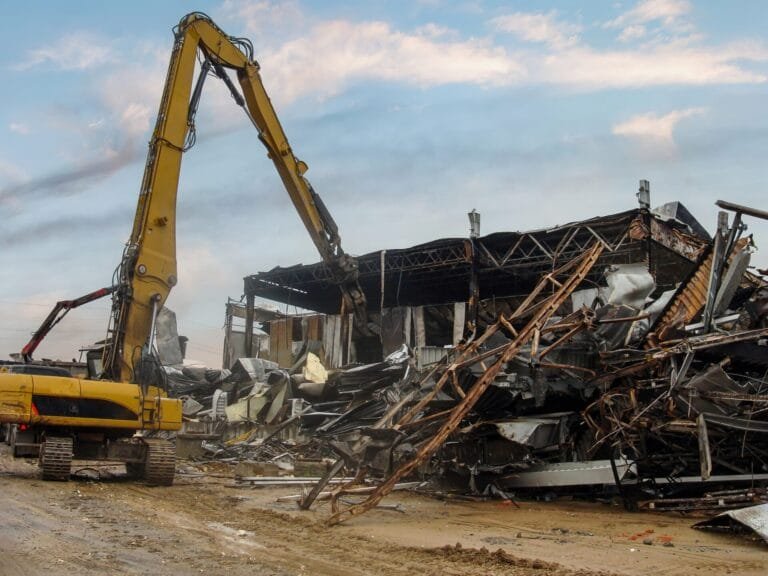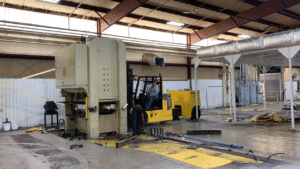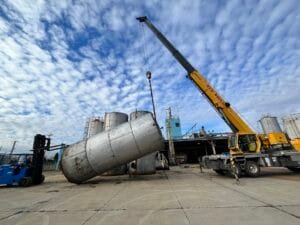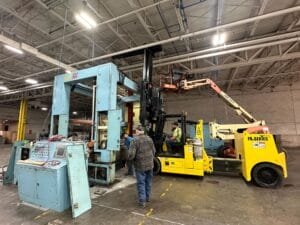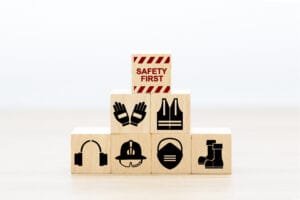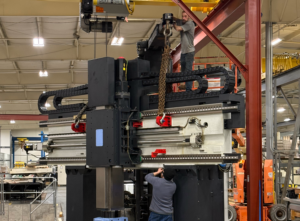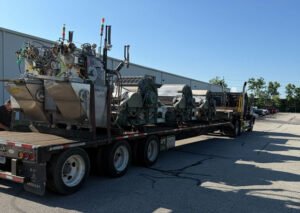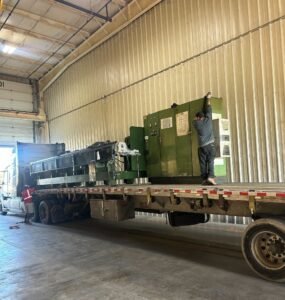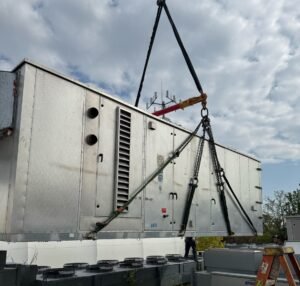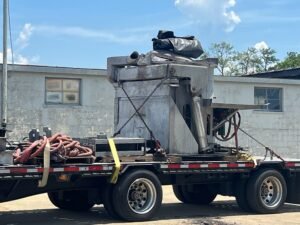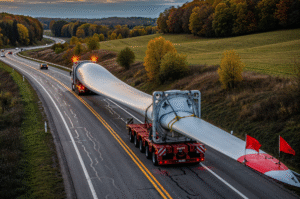When it comes to industrial demolition, the complexity of the task requires a high level of expertise and precision. Whether you are planning to dismantle an old factory, decommission a power plant, or clear out a large industrial site, selecting the right demolition service provider is crucial for ensuring a safe, efficient, and cost-effective process. Industrial demolition differs significantly from residential or commercial demolition because it often involves dealing with hazardous materials, large structures, and heavy machinery. In this comprehensive guide, we will explore the key factors to consider when choosing an industrial demolition service provider.
Understanding the Scope of Industrial Demolition
Before you begin your search for an industrial demolition service provider, it’s important to clearly define the scope of your project. Industrial demolition can range from dismantling smaller factories to removing large-scale industrial complexes or hazardous facilities. Some projects might require selective demolition, while others could involve complete dismantlement and site clearing.
Ask yourself the following questions:
- Are there specific structures or areas that need selective demolition?
- Does your site contain hazardous materials such as asbestos, lead, or chemicals?
- What is the timeline for the project?
A good demolition company will take time to understand the full scope of the project and offer customized solutions to meet your needs.
Qualifications and Certifications
Industrial demolition is a highly regulated field. Any reputable demolition contractor should hold the necessary qualifications, licenses, and certifications to operate legally and safely. When evaluating a service provider, ensure they have certifications such as:
- OSHA Compliance: The Occupational Safety and Health Administration (OSHA) sets standards for workplace safety, especially in hazardous industries like demolition.
- EPA Certification: The Environmental Protection Agency (EPA) oversees the handling of hazardous materials, which is essential for industrial sites containing dangerous substances.
- State and Local Licensing: Depending on the region, different licensing requirements may apply for demolition contractors. Make sure the provider is licensed to operate in your state or municipality.
Checking these credentials not only ensures that the company follows proper regulations but also minimizes the risk of legal or safety violations.
Experience in Industrial Demolition Projects
Experience is one of the most important factors to consider when choosing a demolition service provider. Industrial demolition is significantly more complex than residential or commercial demolition, so it’s essential to choose a company with extensive experience in handling large industrial projects. Look for companies that have a proven track record in demolishing various types of industrial facilities, such as:
- Factories
- Power plants
- Oil refineries
- Warehouses
- Manufacturing plants
An experienced provider will have a deep understanding of the challenges posed by industrial demolition, including hazardous material handling, structural integrity concerns, and heavy machinery operations. Always ask for case studies or previous projects they have completed to gauge their level of expertise.
Safety Protocols and Standards
Safety should be a top priority when choosing an industrial demolition service provider. Given the risks involved—such as falling debris, exposure to hazardous materials, and heavy machinery—it’s critical to select a contractor that prioritizes safety.
Ensure that the provider has:
- A comprehensive safety plan that complies with OSHA standards.
- Proper training for all employees, including certifications in operating heavy machinery and handling hazardous materials.
- Safety officers or supervisors who are present on-site to enforce safety protocols.
- A proven track record of safe operations, with minimal accidents or incidents in their project history.
You can ask to review their safety manuals, protocols, or safety incident records to verify their commitment to safety. In addition, inquire whether they have liability insurance and workers’ compensation coverage to protect both their workers and your company.
Equipment and Technology
The quality and availability of equipment used for industrial demolition are key indicators of a company’s capabilities. Demolition projects, particularly industrial ones, often require specialized machinery, such as:
- Excavators with hydraulic shears and breakers
- Wrecking balls for larger-scale demolition
- Bulldozers and dump trucks for site clearing
- Cranes for dismantling taller structures
- High-reach demolition machines for multi-story buildings
Ensure the provider uses modern, well-maintained equipment to minimize the risk of breakdowns and delays. In addition, some companies use advanced technologies such as 3D modeling and drones for site surveys and project planning. These technologies can improve efficiency and safety, providing better overall results.
Environmental Compliance
Industrial demolition projects often involve hazardous materials, making environmental compliance an essential consideration. A good service provider should be well-versed in handling, removing, and disposing of hazardous materials like asbestos, lead, mercury, and chemical waste.
Key areas to evaluate include:
- Hazardous material abatement: The provider must have expertise in safely removing hazardous materials and ensuring compliance with EPA guidelines.
- Air quality control: Dust and debris from demolition can pose environmental risks. Ensure the contractor has measures in place, such as dust suppression systems.
- Soil contamination: Industrial sites often have soil contamination from chemicals or other hazardous substances. Check if the contractor has experience in soil remediation.
- Water run-off management: Demolition debris can affect local water sources. Verify the company’s ability to manage and treat water run-off effectively.
Failure to comply with environmental regulations can result in significant fines and delays, so choosing a provider with strong environmental compliance is crucial.
Disposal and Recycling Practices
Sustainability has become increasingly important in the construction and demolition industries. Many demolition companies are focusing on recycling materials rather than simply discarding them. This not only reduces waste but can also lower disposal costs.
Ask potential service providers about:
- Recycling rates: What percentage of the demolished materials will be recycled or reused?
- Material separation: Does the company separate metals, concrete, wood, and other recyclable materials?
- Sustainability initiatives: Does the provider engage in any green building or sustainability programs?
Companies with strong recycling practices can help you reduce the environmental impact of your project while potentially lowering costs associated with landfill fees.
Cost and Budgeting
Cost is a crucial factor in any industrial demolition project. However, the lowest bid may not always be the best option. When evaluating bids, consider the following:
- Transparency: Does the provider offer a detailed breakdown of costs, including labor, equipment, disposal fees, and any additional charges?
- Accuracy: Are the cost estimates based on a thorough understanding of the project, or is the provider giving you a ballpark figure?
- Flexibility: Will the company be able to accommodate changes in the scope of the project without significantly altering the budget?
Be wary of bids that seem too low, as this may indicate a lack of experience or poor-quality work. A reliable contractor will provide a fair and transparent pricing model, ensuring that you get value for your money.
Timelines and Project Management
Industrial demolition is often a time-sensitive task, especially if the site needs to be cleared for future construction or repurposing. A good service provider will have a well-structured timeline that aligns with your needs and will be capable of managing the project efficiently.
When discussing timelines, consider:
- Realistic deadlines: Is the provider offering an achievable project completion date?
- Milestone planning: Does the company have a plan for key milestones throughout the project?
- Contingency plans: What happens if unexpected challenges arise, such as bad weather, equipment failure, or the discovery of hazardous materials?
Strong project management is essential for ensuring that the demolition is completed on time and within budget. A reliable service provider will keep you informed throughout the project and have contingency plans in place to address any delays or issues.
Reputation and Client Reviews
Before selecting a demolition service provider, it’s important to research the company’s reputation within the industry. Client reviews, testimonials, and case studies can provide valuable insights into the provider’s reliability, expertise, and professionalism.
Consider the following:
- Online reviews: Check online platforms such as Google, Yelp, and industry-specific forums for reviews from previous clients.
- Case studies: Ask the provider for case studies or examples of previous industrial demolition projects they have completed.
- References: Don’t hesitate to ask for references from past clients, especially those who had similar project requirements.
A company with a solid reputation will be transparent, professional, and experienced, giving you confidence that they can handle your project successfully.
Additional Services
Many industrial demolition service providers offer additional services that can add value to your project. These can include:
- Site preparation: After demolition, the contractor may offer to prepare the site for new construction or development.
- Decontamination: Some providers offer specialized decontamination services for hazardous industrial sites.
- Asset recovery: If your industrial site contains valuable assets (e.g., machinery, metals), some contractors can help recover and recycle these items.
- Structural engineering: For more complex projects, some demolition contractors work with structural engineers to ensure safe dismantling.
Considering these additional services can help streamline your project, reducing the need to hire multiple contractors and ensuring a more cohesive workflow.
Final Considerations
Choosing the right industrial demolition service provider is not a decision to be taken lightly. By considering factors such as experience, safety standards, equipment, environmental compliance, and cost, you can ensure that your project is handled by a professional and reliable contractor. Take the time to thoroughly vet potential providers, request multiple bids, and ask for detailed proposals before making your decision.
Alltracon: One of the Best Industrial Demolition Service Providers
When it comes to industrial demolition, Alltracon stands out as a leader in the industry. With years of experience in handling complex demolition projects, Alltracon is known for its commitment to safety, environmental compliance, and efficiency. Their highly skilled team uses the latest technology and equipment to deliver precise and reliable demolition services. Whether you need large-scale industrial facility demolition or selective dismantling, Alltracon is equipped to meet your needs with professionalism and expertise.
